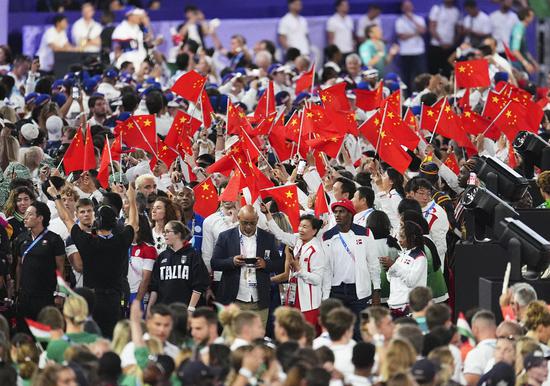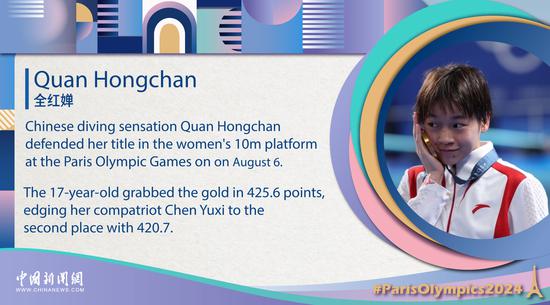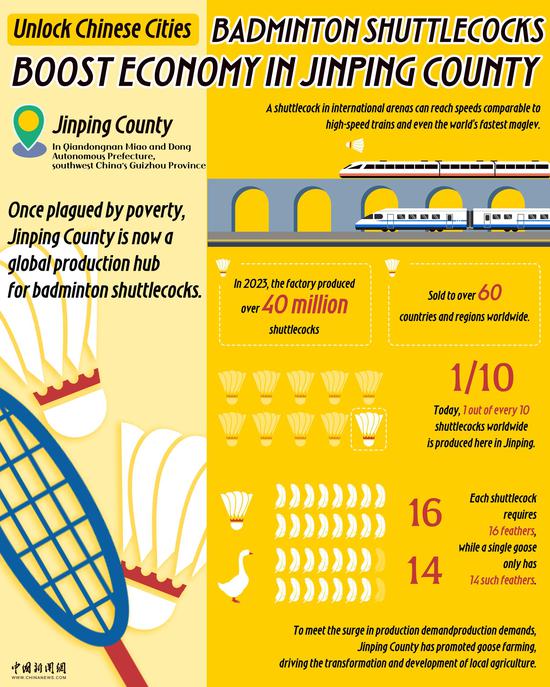China has outlined a range of policy measures to support the development of service consumption across a broad spectrum of industries to unleash new drivers of domestic demand and further contribute to long-term economic development, analysts said.
However, consumers have become more cautious in a climate marked by economic uncertainty, with a growing tendency to prioritize savings and ensure financial security, they added as they called for greater efforts to instill market confidence and stimulate economic activity.
The State Council, China's Cabinet, rolled out a guideline this month to promote the high-quality growth of service consumption in a bid to optimize and expand service offerings, and to meet the evolving needs of Chinese people across various demographics.
China is currently experiencing a rapid growth phase in service consumption, with the pace of expansion surpassing that of goods consumption, emerging as a primary driver of incremental consumer spending, said Chen Lifen, a researcher at the Development Research Center of the State Council.
According to data released by the National Bureau of Statistics, retail sales of services in the first half of this year climbed 7.5 percent compared with the same period last year. Notably, the growth rate of service retail sales outpaced that of goods retail sales by 4.3 percentage points during the period.
While service consumption is now a major contributor to household expenditures in the country, the share of service consumption in total household spending remains relatively low compared to high-income economies at a similar stage of development, indicating that there is significant room for growth and untapped potential in China, Chen added.
There is a growing focus on harnessing the potential of foundational consumer services, particularly in sectors such as catering, accommodation, home services, elderly care and childcare, according to the guideline.
China's dining and hospitality industry, an essential part of daily life, currently accounts for only 1.7 percent of the nation's GDP, significantly lower than levels seen in developed countries, said Xu Tianchen, senior economist at the Economist Intelligence Unit.
With Chinese increasingly seeking unique, high-quality dining and accommodation experiences, enhancing service quality and exploring distinctive offerings have become critical. This focus not only aims to satisfy the evolving preferences of consumers, but also positions the sector for robust expansion, Xu said.
As China grapples with challenges posed by an aging population and evolving family dynamics, the development of domestic and elderly care services has also become increasingly vital, Xu said.
Meanwhile, these labor-intensive industries play a crucial role in job creation. As more people find employment in these sectors, the resulting increase in disposable income will further drive consumer spending, creating a positive feedback loop that benefits the broader economy, Xu added.
Targeting enrichment
In addition to promoting essential service consumption, the guideline aims to invigorate the consumer landscape by encouraging spending in enrichment-oriented sectors such as culture, entertainment, tourism, sports, education and training.
The Chinese live entertainment scene is experiencing a remarkable boom, as revealed by data released by the China Association of Performing Arts. In the first half of this year, ticket sales for concerts and music festivals have soared, with a year-on-year increase of about 135 percent in box office revenue and a 63 percent surge in audience attendance.
The next generation of consumers is seeking more than just a passive viewing experience — they are looking for shows that offer social connections, interactive elements and a sense of immersion, said Hong Tao, vice-chairman of the China Consumer Economics Society.
This shift presents a wealth of opportunities for the industry to explore new avenues and cater to the evolving tastes of consumers, Hong said, adding that authorities should streamline approval processes and increase the number of showings.
Moreover, sports venues in cities such as Beijing, Shanghai, and Guangzhou and Shenzhen in Guangdong province are experiencing a surge in reservations and bookings as the excitement surrounding the Paris 2024 Olympics has reverberated across China.
Taking tennis as a prime example, data provided by life services platform Meituan revealed a remarkable surge in interest in the sport since the onset of July, with orders of services related to tennis increasing 172 percent year-on-year.
To foster a more active and sports-friendly environment, authorities, by harnessing the potential of idle venues and directing social forces to refurbish old industrial structures and commercial facilities, are paving the way for the establishment of more sports consumption areas, as outlined in the guideline.
These transformations are set to not only breathe new life into neglected spaces, but also enhance the accessibility and diversity of sporting venues available to the public, Hong said.
Additionally, amid a backdrop of increasing travel enthusiasm and pent-up wanderlust, the vibrant tourism sector has become a beacon of opportunity, igniting a surge in consumer engagement and driving positive momentum in economic indicators.
The first half of this year witnessed a remarkable surge in domestic tourism in China, with the total number of domestic tourist visits reaching 23.84 billion. This influx of travelers contributed to a substantial increase in domestic tourism revenue, which soared to an impressive 2.3 trillion yuan ($321.3 billion).
As travelers flock to destinations near and far, the tourism industry is not only fueling demand for travel-related services, but is also creating a ripple effect across various sectors, stimulating consumption patterns and boosting economic vitality, said Ma Yiliang, the chief statistician of the China Tourism Academy.
The guideline also put an emphasis on refining entry regulations and improving consumer facilities, aiming to create a more streamlined and welcoming environment for international visitors and prepare for a resurgence in tourism activities.
Issues with oversight
The intricacies of service provisions, which often involve subjective experiences and personalized interactions, contribute to the complexity of monitoring and ensuring consumer satisfaction in service transactions, said Dong Chao, head of the Institute of Circulation and Consumption, which is part of the Chinese Academy of International Trade and Economic Cooperation in Beijing.
This heightened difficulty in oversight has led to a surge in consumer grievances within sectors such as tourism and household services, where the intangible nature of services can sometimes lead to misunderstandings or dissatisfaction, Dong added.
To this end, the guideline has put forward steps to optimize the service consumption environment, bolster regulatory oversight in service sectors, promote integrity and compliance in business operations and refine service consumption standards.
Despite the government's concerted efforts to boost domestic consumption, the much-anticipated rebound in consumer demand is yet to fully materialize, said Chen Wenling, chief economist at the China Center for International Economic Exchanges in Beijing.
The total yuan-denominated deposits grew by 11.46 trillion yuan in the first half of this year, with household savings deposits accounting for the majority, at 9.27 trillion yuan, according to data from the People's Bank of China, the country's central bank.
Household savings deposits have cumulatively increased by around 58 trillion yuan since 2020. This substantial buildup of savings suggests that consumers remain hesitant to spend, Chen said.
Sufficient job creation, a robust and responsive supply-side ecosystem and new consumption models should be high on the government's work agenda to bolster consumer spending, Chen added.


















































 京公网安备 11010202009201号
京公网安备 11010202009201号